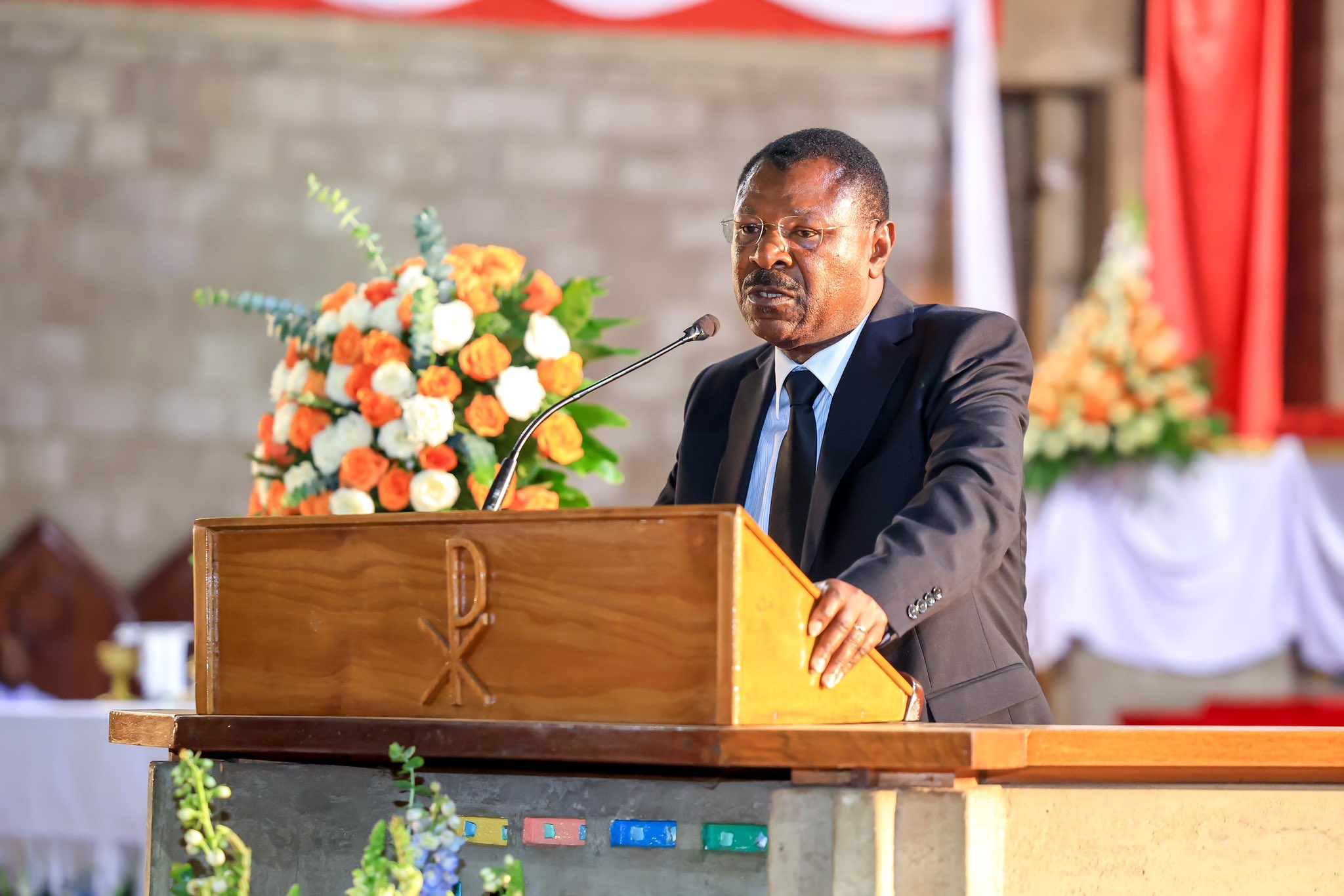Following the assassination of Kasipul Member of Parliament Charles Ong’ondo Were, Members of Parliament have urged Nairobi Governor Johnson Sakaja to take immediate action to ensure that all CCTV cameras within the city are fully functional and operational around the clock.
The MPs stressed that restoring the functionality of these cameras is crucial to improving public safety and preventing further criminal activities across the city.
The call for improved surveillance came after Were’s tragic killing on April 30, when he was shot while stuck in traffic in Nairobi.
According to police, the MP was targeted by a gunman who was assisted by an accomplice riding a motorbike.
The murder has drawn public outrage, and the request for improved CCTV systems in the city has grown louder.
National Assembly Speaker Moses Wetang’ula, speaking on behalf of other lawmakers during the requiem mass at the Consolata Shrine in Nairobi, emphasized the need for the Nairobi County Government to prioritize the maintenance and operational efficiency of the CCTV cameras.
He explained that fully functioning cameras would not only help deter criminals but also play a significant role in the identification of suspects involved in violent crimes, such as the recent murder.
"Governor of Nairobi, we want to see that all CCTV installations in the city operate optimally, 24 hours a day, to capture wicked characters who are in the city molesting others and causing pain and suffering to innocent families," Wetang’ula stated.
The MPs further noted that the security of Nairobi’s residents has been jeopardized by the poor state of the city's surveillance infrastructure.
They called on the county government to act swiftly to ensure that the cameras, many of which have been out of service for years, are repaired and fully operational.
The failure to maintain the system has raised concerns among the public about the city's commitment to tackling crime and improving security.
Governor Sakaja, who also attended the requiem mass, offered his condolences to the family of the slain MP and the residents of Kasipul.
He expressed his sorrow and acknowledged the emotional toll the murder had taken on the people of Nairobi.
"On behalf of the people of Nairobi, where a child and a family are also constituents just as all of you are, I want to pass sincere condolences from myself, my family, and all the people of this city during this very difficult time," said Sakaja.
"I know emotions have been very high since this incident happened. It was a shock to all of us."
Despite his expression of sympathy, Sakaja has come under increasing pressure to take action and address the deteriorating security systems in Nairobi.
With rising crime rates and public concerns about safety, the restoration of the CCTV infrastructure has become a pressing issue.
The system, which was initially introduced as a crime deterrent, is now largely ineffective due to the malfunctioning cameras.
The city’s CCTV system, which was first introduced in 2012 under the Ministry of Nairobi Metropolitan Development, had an initial cost of Sh437 million.
A Chinese company was contracted to install and test the cameras, with the intention that they would be transferred to the county government after installation.
However, despite the significant investment, the project has faced ongoing maintenance challenges, with most of the cameras failing to function as intended.
By 2018, it was revealed that 26 out of the 42 cameras placed along major roads such as Moi Avenue, Uhuru Highway, Kenyatta Avenue, and Tom Mboya Street were no longer operational.
Additional cameras installed at key locations like University Way and the Lusaka Roundabout were also damaged.
Some of the cameras were reportedly broken by students and construction workers, while others were rendered useless due to poor maintenance and lack of ownership.
County officials have explained that the Nairobi government does not own the project and, therefore, cannot properly maintain the cameras.
In 2019, the county’s Public Accounts Committee was informed that the cameras are still under the control of the contractor, who has demanded Sh7.2 million in repair costs before transferring the project to the county.
This situation has left the county government in a difficult position, unable to fully restore the CCTV system.
Meanwhile, police have made progress in their investigation into Were’s killing.
The Directorate of Criminal Investigations (DCI) has arrested six suspects in connection with the murder, and detectives are continuing to track down other individuals involved in the crime, including a police officer believed to be part of an organized criminal group linked to the attack.
Detectives are also reviewing footage from functioning CCTV cameras around the crime scene to help piece together the events leading up to the murder.
However, the city’s reliance on a patchy surveillance system has hindered the investigation.
In the wake of this tragic event, MPs have once again emphasized the need for the Nairobi County Government to take full responsibility for the CCTV project and ensure that all cameras are repaired and maintained.
